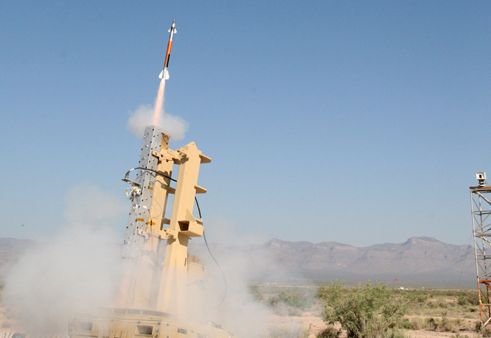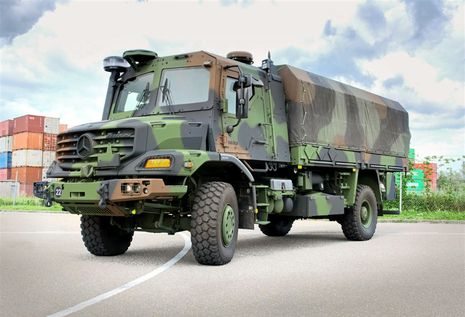Lockheed Martin’s (LMT) Extended Area Protection and Survivability Integrated Demonstration (EAPS ID) program successfully conducted a Controlled Test Vehicle flight test on May 26 at White Sands Missile Range, N.M.
The test was conducted in collaboration with the U.S. Army Research Development & Engineering Command/Aviation Missile Research Development & Engineering Center (RDECOM/AMRDEC).
The Lockheed Martin EAPS solution uses a Miniature Hit-to-Kill (MHTK) interceptor that defeats Rocket, Artillery and Mortar (RAM) targets at ranges greatly exceeding those of current systems. During the flight test, the tactically configured MHTK interceptor was launched vertically and then conducted a series of maneuvers to demonstrate required performance while capturing data. The data collected will support guided flight tests, against live RAM targets, beginning in the second half of 2012.
“Providing improved protection to our deployed soldiers and other personnel is extremely important; the AMRDEC is very pleased with this test. This flight test shows excellent progress in demonstrating the technologies that will be required for employing the MHTK concept in the defeat of RAM threats,” said Loretta Painter, AMRDEC EAPS program director. “This flight test provided the program with critical data, which is now being analyzed and the resultant will be incorporated into the system as this effort moves into guided flight tests, intercepting RAM targets.”
“This successful test further demonstrates the capabilities of our revolutionary Miniature Hit-to-Kill missile,” said Mike Trotsky, vice president of air and missile defense programs at Lockheed Martin’s Missiles and Fire Control business. “EAPS extends our legacy of accuracy and lethality first demonstrated in our combat-proven PAC-3 Missile.”
The Lockheed Martin EAPS round is an extremely agile, small hit-to-kill interceptor that weighs approximately 3 kilograms. It is less than 50 millimeters in diameter and less than 1 meter long. The interceptor is designed to be affordable and will meet the AMRDEC Average Unit Production Cost goal at specified quantities. Paired with a fire control sensor, EAPS defeats targets through body-to-body impact at tactical ranges.
Lockheed Martin’s EAPS supports multiple launchers and fire control sensors. This capability greatly increases the protected operational environment, providing soldiers greater protection and increased flexibility over legacy and interim systems.
Headquartered in Bethesda, Md., Lockheed Martin is a global security and aerospace company that employs about 123,000 people worldwide and is principally engaged in the research, design, development, manufacture, integration and sustainment of advanced technology systems, products and services. The Corporation’s net sales for 2011 were $46.5 billion.











